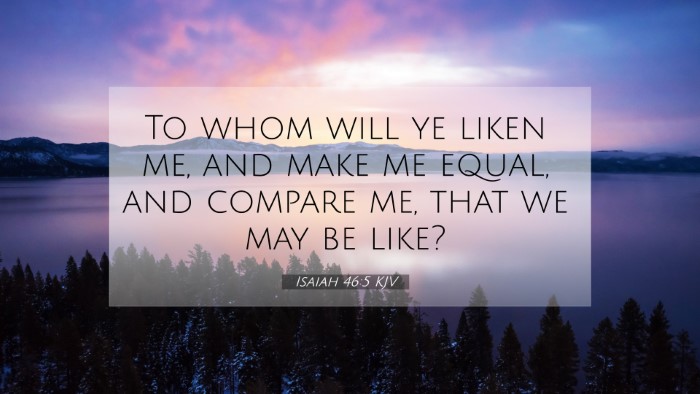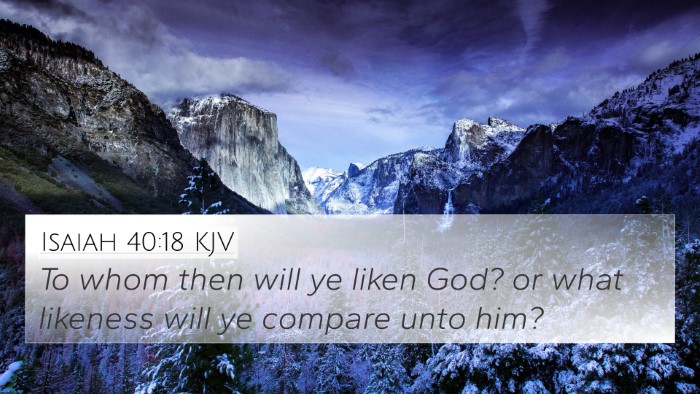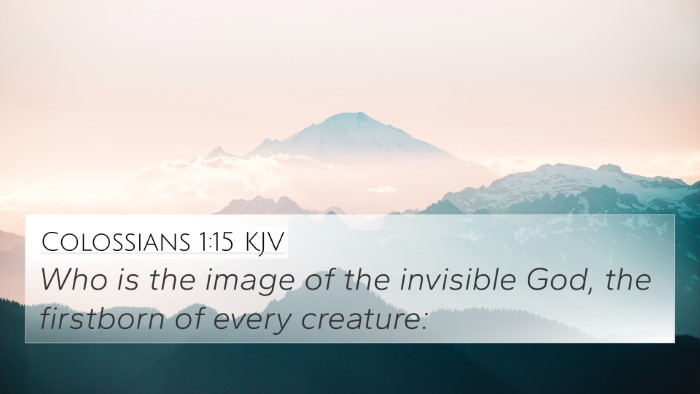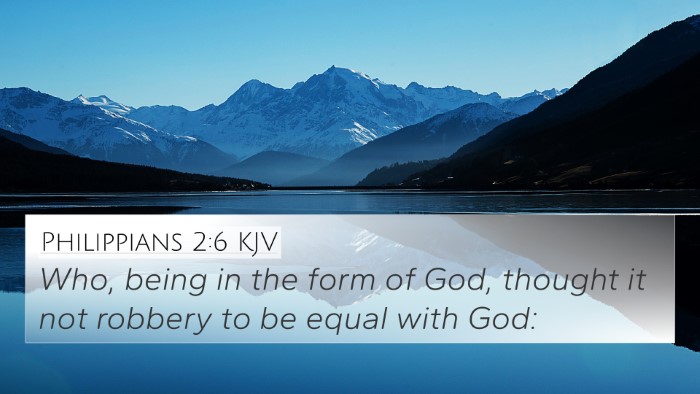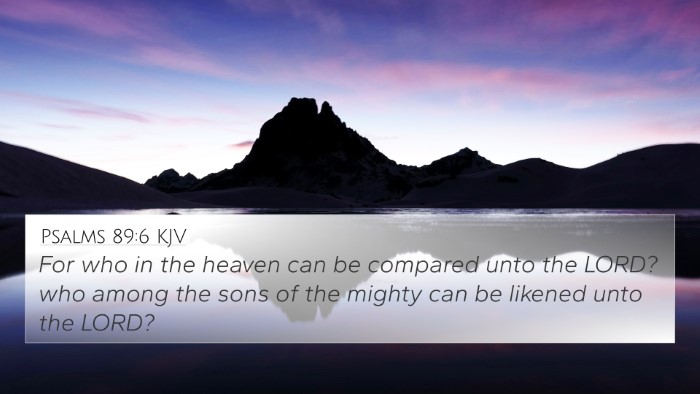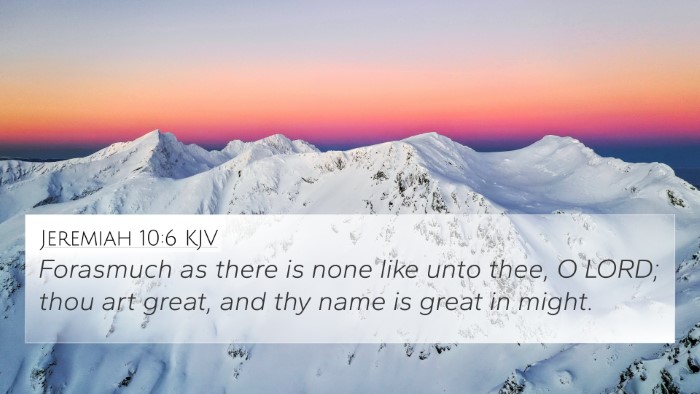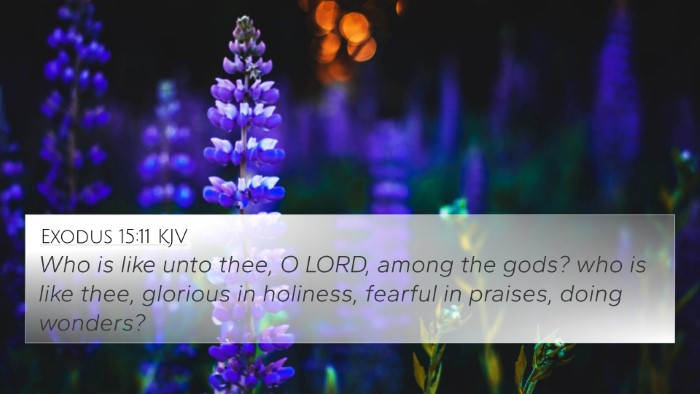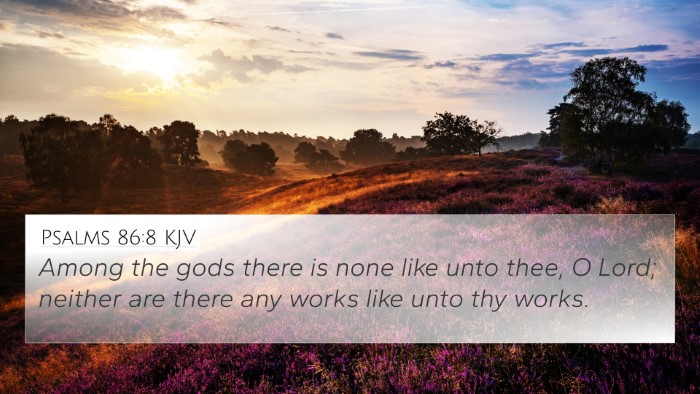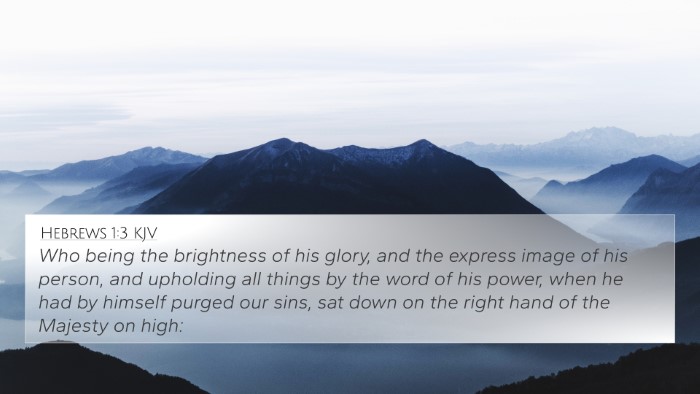Understanding Isaiah 46:5
Verse: "To whom will you liken me, and make me equal, and compare me, that we may be alike?" (Isaiah 46:5)
This verse challenges the reader to reflect upon the uniqueness of God. Through a synthesis of insights from public domain commentaries, we can explore the layers of meaning contained within Isaiah 46:5.
Summary of Insights
- Matthew Henry: Highlights the futility of comparing God with idols or any created thing. He emphasizes that God's supremacy is unmatchable, insisting on a profound understanding of divine singularity.
- Albert Barnes: Suggests that the question posed in the verse is a rhetorical one, emphasizing that no one and nothing can be placed on a level with God, thus affirming His unparalleled nature.
- Adam Clarke: Discusses the implications of such comparisons, warning against the trivializing of God’s magnitude by attempting to draw parallels with lesser entities.
Thematic Connections
This verse resonates with key themes throughout the Bible, offering multiple opportunities for thematic Bible verse connections. Below are noted cross-references:
- Exodus 15:11: "Who is like you, O Lord, among the gods? Who is like you, majestic in holiness, awesome in glorious deeds, doing wonders?" - a direct affirmation of God's uniqueness.
- Psalms 86:8: "There is none like you among the gods, O Lord, nor are there any works like yours." - reinforces the theme of God's peerless majesty and capabilities.
- Isaiah 40:18: "To whom then will you liken God, or what likeness compare with him?" - a parallel that drives home the same challenge of comparison.
- Isaiah 45:5: "I am the Lord, and there is no other, besides me there is no God." - further emphasizing the idea that God stands alone in His divinity.
- Romans 1:25: "Because they exchanged the truth about God for a lie and worshiped and served the creature rather than the Creator, who is blessed forever! Amen." - a New Testament reference discussing the folly of making false comparisons.
- Jeremiah 10:6: "There is none like you, O Lord; you are great, and your name is great in might." - echoes the central message that God cannot be compared to anyone else.
- Psalm 113:5: "Who is like the Lord our God, who is seated on high?" - another psalm that compliments the challenge posed in Isaiah 46:5.
Comparative Study
In a comparative Bible verse analysis, one can examine how this verse correlates with key ideas present in both the Old and New Testaments. Such comparative explorations reveal a consistent theological theme that positions God as supremely incomparable:
- Investigating links between the Prophets and Apostolic teachings shows a continuous affirmation of God's unique sovereignty.
- Identifying the connections between Isaiah's warnings against idolatry and the warnings found in New Testament texts highlights the continued relevance of these themes.
- Cross-referencing the sentiments of Isaiah with corresponding passages in Revelation further solidifies the idea of divine leadership above all.
Tools for Cross-Referencing
Utilizing a Bible concordance can significantly enhance the process of understanding and identifying cross-references. These tools help in comprehensively exploring how various scriptures relate to the core message found in Isaiah 46:5. Bible cross-reference guides, systematic studies, and chain references can serve as invaluable resources for deeper insights.
Conclusion
Isaiah 46:5 serves as a pivotal verse that invites all believers to acknowledge God's unmatched nature. By engaging in scriptural cross-referencing and drawing thematic connections, readers can deeply explore the significance of this verse and the broader theological implications it carries throughout the Scriptures.


